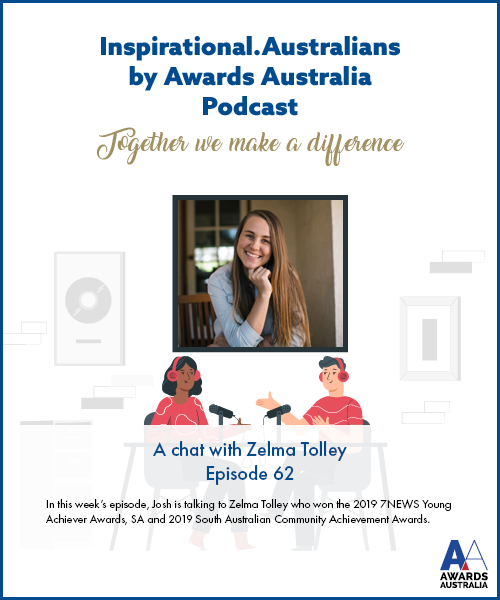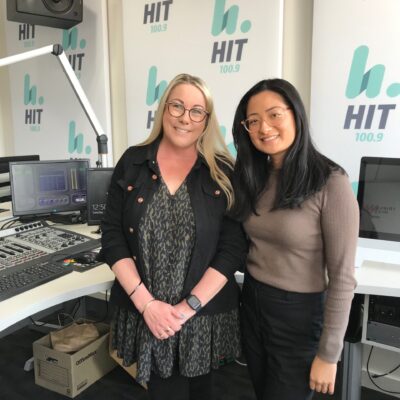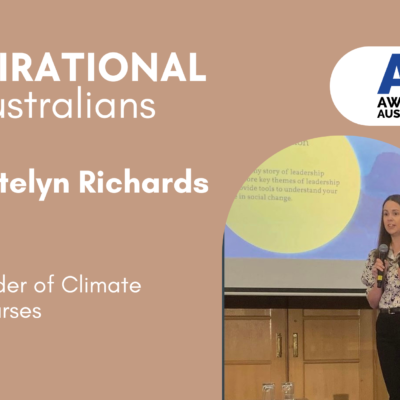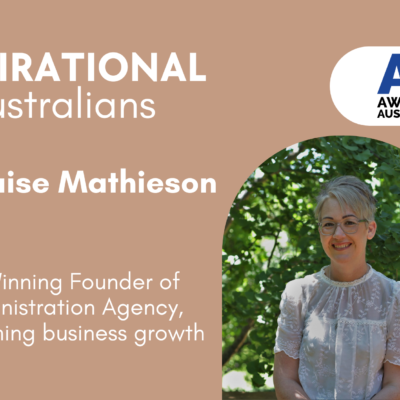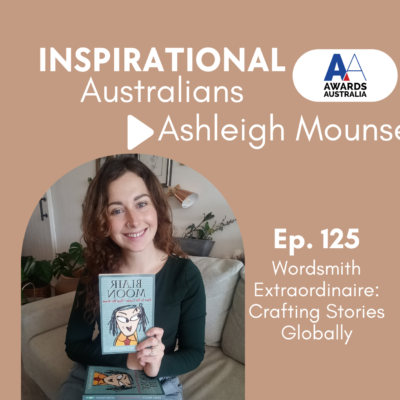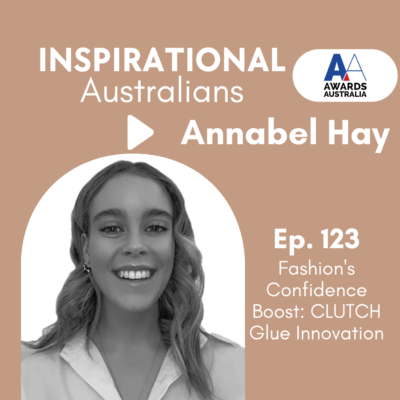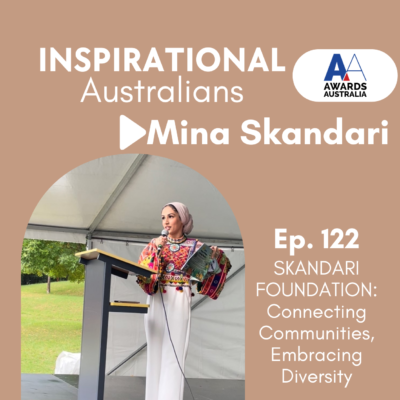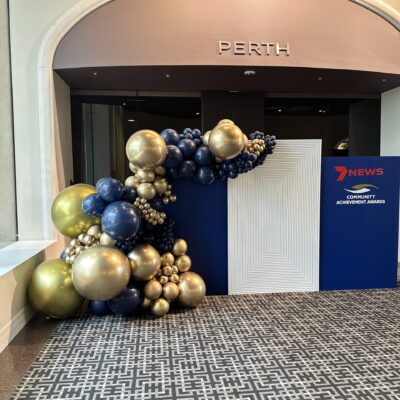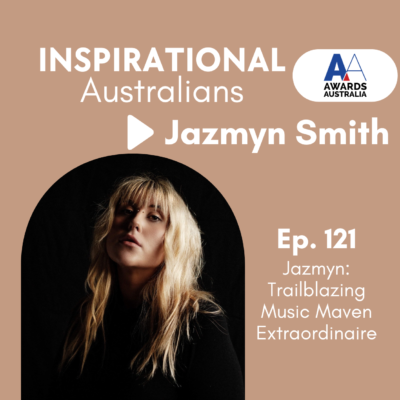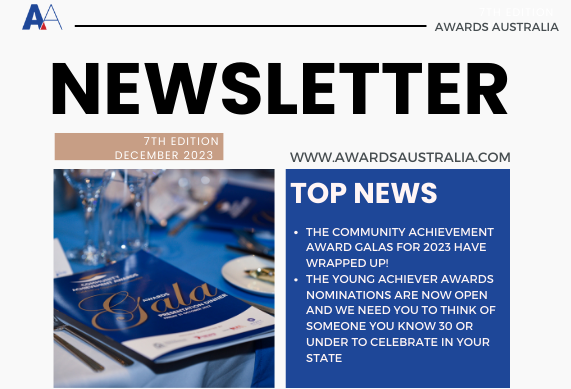In this week’s episode, Josh is talking to Zelma Tolley who won the 2019 7NEWS Young Achiever Awards, SA and 2019 South Australian Community Achievement Awards.
Zelma Tolley is raising awareness and reducing stigma about perinatal mental health.
She founded The Postnatal Project during the final stages of her first pregnancy. Zelma built the website and collated all professional service connections in Australia to support mums, dads, families and their village, in their journey to healing. She volunteers for the Perinatal Anxiety and Depression Australia Community and connects rural communities that are otherwise isolated.
Zelma has written an eBook and published articles that bring a rural voice on rural issues. In 2018 Zelma wrote and launched “Mama, Let’s Be Honest” – an eBook that has sold internationally.
In this episode:
- Zelma gives great tips to parents through our chat. Some of them are:
– Allow yourself to be a human – not Super Mum or Super Dad
– Listen to your own instincts and heart
- Need some resources? Head over to Zelma’s website for her ebook, read the blogs or get some free resources
Links
Connect with The Postnatal Project on Facebook
Connect with The Postnatal Project on Instagram
To find out more, go to www.thepostnatalproject.com
Want to know how to Rate and Review a podcast, see this article
Follow us on our Inspirational.Australians Instagram Page
Want to nominate someone? (It can take as little as 2 minutes to recognise someone making a difference)
Like some more information on Corporate Partnership?
Transcript
Annette
Welcome to the Inspirational Australian’s podcast, where we chat to people making a difference in their communities and in the lives of others. And here’s your host today, Josh Griffin.
Josh
Thank you, Annette. Before we get started and introduce our guest, Zelma for this week’s dose of inspiration, I just wanted to acknowledge that I’m recording here in Bateron country today and acknowledge the traditional owners and also elders past, present and leaders who are emerging.
Now for this week’s chat, we’re talking to Zelma Tolley, who, other than having one of the greatest names in the history of names is just a truly inspirational person. And someone that I met through association with the Young Achievers Awards firstly, and this person Zelma had a rare distinction of being a winner, not only in our Young achiever Awards but Community Achievement Awards Program, which is very, very rare and very cool. And also, just personally from a personal standpoint, Zelma a lot of her content that she puts out, we’ll talk about this shortly. It had an impact and a help for me as a new parent.
So, before we get into that Annette, I want to say a quick hello to you as well. And I understand you’ve got a bit of an exciting update.
Annette
I do! Good morning Josh. I’m coming from Wurundjeri country. Even though Josh and I are both in Victoria. We’re both on separate countries. And what I’ve got is very exciting. We have merchandise on our website, go to awardsaustralia.com/shop, and you can buy T-shirts. You can buy bags. We are launching next week at community marketplace and all of the sales thatgo from anything on the shop. Go towards price grants for our winners. So it’s Australians helping Australians. So, I really love that concept. My other little thing, if you can please rate and review our podcast that really makes a difference to people finding it has they’re just scrolling through. And if you don’t know how to rate, go to our website and go to the podcast page. And I’ve puta little handy how to guide them over to you, Josh.
Josh
Yes, awards Australia.com/podcast is the easy way to find that.
So I’ve already given a little intro for Zelma, so I’m going to welcome you on Zelma. Good morning. Thanks for joining us.
Zelma
Thanksfor having me. I appreciate the opportunity.
Josh
Absolute pleasure. So, what I was alluding to earlier, and I said, so the content you put out is through an initiative that you created called the Postnatal Project. So, I guess my main interaction with it is been your Instagram page, the Postnatal Project. Do you want to just let people know what that is and firstly and maybe how it started?
Zelma
Yeah, sure. It’s interesting. It actually started via Instagram and I’ve never used Instagram before. The reason for that was I was sort of just exploring my own journey as a new parent and I was feeling both quite inspired. But also, I was sort of on my own journey to healing from birth and recovering and kind of transitioning and what that meant for me. And by using Instagram, I was kind of keeping it separate from my personal Facebook page because it’s sort of not what I was really interested in. At that time. I was just, yeah, it was quite a creative way. It was an outlet for me in the beginning. And as I continued onwith it, I just realized that there was such a need to continue these conversations. I didn’t want this to be a short-term thing. So, I decided to consolidate. Have a website, try to create some links to services within my community, but also broader just to make it a little bit easier for families. But whilst I was using that lived experience of my own journey, at the same time, I felt like it was a really nice holistic approach to the conversations that I was trying to have. Yeah. So, it started from there and it’s just kept on growing basically.
Josh
And when you started it was where you publishing your name into it, or was it something that you could kind of, you said, you know, you were keeping it separate to your personal Facebook, which is something that you felt, you know, that you could have this release or something because it was private.
Zelma
Yeah, no, I was totally anonymous. And probably wasn’t and didn’t realize that people knew it was me.
Josh
But Oh really?
Zelma
Yeah. I just, I got to the point where people were probably going to figure it out anyway, and I thought, you know, I am going to own this because this is great. This is actually sparking some really great conversations in our community. And I should be proud and so I kind of had this moment of yeah. Like, it’s time now to put my name to it. So I did.
Josh
And what was your background before you became a mom and you started this Instagram account and things you did. You did you have knowledge of some of this stuff or was it that lived experience purely that you’re talking about?
Zelma
Yes, I wasa social worker and I was working in the foster care system. I get and I knew about all the stuff that sort of when it was happening to me. I just thought all that part that what happened to me, you know, like I’m quite a lovely person. You know? Like I’m not going to struggle. I am so excited to be a mom. I didn’t really expect it to be quite such an intense experience. And so yeah, when it was, I kind of felt like I could use that really nice language and kind of theory that I had behind me with my degree and my experience. But yeah, that combination of the lived experience I think has been the winning combination will resonate more with me just being me than me being social worker me.
Josh
I guess if you compare from like maybe someone who lives in a quite a big city or metro area and you’re in port Lincoln. And that’s where you still are. You were in port Lincoln currently. Yeah. Did you also find that that had an impact or made a difference in your experience? Becoming a mum for the first time and stuff in a smaller kind of town?
Zelma
I think so. I was hesitant to access any services initially. I sort of thought, oh, I’m never going to get a job now if I say I’m feelinga little bit depressed and I’m struggling and my baby’s crying all the time. You know, I wasn’t, I wasn’t sure how to navigate that at all. And so initially I decided I wouldn’t, and then I tried to again, keep some of my story private that I was sort of writing about on a blog. But yeah, it did make a big impact, a big sort of impact on my decision making around that. But at the same time, it was such a positive thing because it has started to give regional mothers a voice in the city. I feel like there are a lot of services available and we don’t have that here. We don’t have mother and baby units and things like that and we don’t have specialists here. We even struggle with just women’s health Physio, and things like that, like the waitlist is huge. So yeah, I think it has been a good thing to have those conversations coming from a regional base.
Josh
Yeah, that is quite cool. So what year was this? Take us back to the when this was all happening when it was launching?
Zelma
Yes. So, I had my first baby in 2015 and I was already, I really wanted to create an app. Straightaway. I don’t know what sort of who I am. I’m just kind of like, oh, I’m struggling all the people must be to, I’m going to do something. It’s just, yeah, who I am, but yes, it’s January 2016 is when I would say it’s the launch of the Postnatal Project. That was when I made it public that it was me and this is what I’m about. And this is what I’m trying to do.
Josh
But like to say that when my wife got pregnant and I became a dad to be then a dad and felt safe to say that yet my eyes were open to a lot of things that happened. And that women bear and go through as being the person who gives birth. And all of a sudden, these people I knew who you had gone through that already. Their stories were coming out because we were good friends with them. But because we were experiencing the same things, and I just was blown away by like, wow, I think it seems to me, and I don’t want to generalize. But it seems like everyone has a touch of depression or really struggles is probably the best way to say it through because it’s such a life changing experience. And so, I think what you’re doing is really important because it lets people will and this is my first experience to let us know that we’re not alone in this Everyone’s doing, experiencing this and it’s normal.
Zelma
Oh yeah, I think initially when I first started writing I was really quite strongly promoting recovery from postnatal depression and things like that. But these days I hardly talk about labels and things like that because I, I do think that most people ninety-nine point nine, nine percent of people do have moments even if it’s just half a day where they say, wow, this is so tall everyone. Everyone has that because we’re human and I think that the stigma comes from when we’re starting to put labels on. And of course, some people do require treatment and things like that. And that’s one hundred percent fine as well. But I think the more we spot conversations, we might stop people from going down into that dark hole because they’re feeling left alone straight away from their own self.
Josh
So, can you tell people a little bit of what the Postnatal Project Instagram account, because I’ve seen it play out a little bit from following it fora number of years. And I remember a stage where there was what color it was. It was a colored background, and like words was the only post. And then it was kind of sweet when you were doing a bit more pictures and you can tell us how it all played out and what’s kind of been happening because I know that you’ve also released books and things like that too.
Zelma
Yeah, I yeah, the books were definitely just because I couldn’t fit everything, I wanted to say inone tidy little instigations quit but yeah, I guess my Instagram has just grown and I’ve had to grow with it. I’ve had to getmore creative. I’ve had to get more professional. If I say so I hope I’ve got some professional photos done and things like that that have really helped I think take it to the next level because I really want to grab people’s attention so that we stay long enough to read my messages and my comforting words if, if, if it’s not polished these days, I feel like people just kind of scroll on. So that’s been kind of an important part of getting my message out is progressing in that way. I’m still feel like such a beginner. I have no idea what I’m doing, half the time with Instagram. Sometimes it takes off, sometimes I lose fifty followers. Oh yeah. All the time. I don’t know how it works, but yeah, the books have been amazing because the e-books can be downloaded around the world and actually helps me because I’m listed as the sole trader. I don’t have capacity to apply for any funding or anything like that. One day later down the track, I’d love to move into like a not-for-profit space, But I just don’t have the capacity at the moment to Yeah. With my little ones in the home. So yeah, the eBooks and things like that, just help me to pay my bills because there are a lot of bills, have insurance and all that kind of thing to cover. So yeah, it’s been really great to reach people in that way and give people at all is basically the idea.
Josh
Yeah. How do you, do you find that Instagram isa great tool because of the indirect intractability. You know, people can really reach out to you and you can have conversations with them.
Zelma
Yeah. Oh, totally. No, it’s a great way I do. I do try to have boundaries though, because it can get really tricky when you’re so accessible to people. But I really do love having those conversations. I even have people who follow me for years who I consider like a friend. Now I’ve never met them, but we chat all the time and I always support all my campaigns. And yeah, it’s, I think it can be a really great place to get information and also to get support. You just have to tread a little bit carefully with how you’re doing it, basically.
Josh
For sure! So, what was your experience like with your children? Because you’ve had, you’ve got two, is that correct?
Zelma
Yeah, I’ve got two.
Josh
And so what, what were you finding that was helping you to get through everything and then did that then inform I suppose what you were putting out on your, your page, your account?
Zelma
Yeah, I think it’s a combination of what I found helped me, and the things that I felt were really lacking in our regional health care system. I felt there are a lot of barriers to treatment and just support. I’ve got a friend who’s a midwife as well, and she says she really struggles even now, for women to seek support unless they’re at the real pointy end of wanting to end their lives. They can’t, they can’t get a referral because it’s not deemed severe enough. And so, we’ve got this real gap in preventative care basically. So yeah, I feel like sometimes although Instagram is never going to be the way it is, one way of building community care. And those conversations that we have really openly might help someone else to talk to their husband or their partner or their friend about what’s happening to them. That’s kind of the idea. Yeah.
Josh
Yeah. And for any dads, listening any new dads, especially, I know that your is mainly aimed at moms. But have you got any kind of advice or even just little things you’ve heard from other moms that, that really help for dads to kind of be part of it support their, their partners and you know, I guess help women through that period?
Zelma
Yeah, I actually, it’s interesting, I’ve tried to change my language a little bit around same parents as opposed to mothers, but I do find that sometimes it is quite applicable when you talk about breastfeeding things like that. You can’t always include all parents, But I, I would say that for dads, I think the biggest thing is just allowing yourself to be human as well because I think there’s a lot of pressure on the non, I would say non primary caregiver because it’s not always a dad. But yeah, on that person to go out and bring the money home. And then you’ve got to walk in the door and be just one hundred percent fine. Even though you’ve had a massive day and you’ve got you might have a crying baby and your wife or your partners just knackered. It’s almost like you’ve got a second shift and although that other partner is knackered as well, of course it’s just, yeah, I feel like sometimes there’s a tendency to bottle that often be this person, this really strong person and try to carry everyone. And I don’t think you have to; I think it’s OK to fall intoa heap too if you need to. And just being just considering yourselfa team basically.
Josh
Yeah. I wonder if in areas that are locked down, like I’m recording from Melbourne today. You know, people who are going through the newborn phase mums and dads may be together at home. I wonder if that’s going to create a whole new dynamics understandings and empathy?
Zelma
Yeah, we obviously stay the whole day actually.
Josh
Yeah, that was an eye opener for me. Like the first time I probably looked after our first newborn the whole day myself because I was working and then on weekends and usually together. And that was Yeah, that was really happening like Oh well OK. I kind of really get them some of the stuff you’re talking about the whole day because it’s a slightly different than just doing shifts.
Zelma
Yeah, no, that’s right. Yeah. It’s quite relentless. And yeah, I can feel really kind of unforgiving. Sometimes you don’t really get a break.
Josh
That’s true. So from Port Lincoln to Adelaide, people don’t know where that is. If you look on the map, it doesn’t look like that really, but to drive there, you have to go along the coast and is about seven hours I think, is that right?
Zelma
Yeah. That all or a little tiny bit more, But yeah, about that. I mean, you can hop on a flight, which is only forty-five minutes, but it’s, it can be quite expensive and not always accessible to some families.
Josh
Yep. So now going, remember because I seem to remember for one of the awards nights, so there was the Younge Achiever Awards and the Community Awards and this is where I’m asking you to, to see if you remember better than me. There was some kind of issue and you were maybe like unable to come.
Zelma
Yeah. And I didn’t think that was going to be a big deal. But then I ended up winning. So yeah, it was just, it was just all going to be too hard financially, logistically look, I’m not going to win anyway. I won’t worry about it. I won’t miss me. And then yeah, you guys organised a room for us which just took a little bit of pressure off. It meant that we could fly over and just yeah.
Josh
Yeah, it was interesting. We actually get it. You know, not, not often. I wouldn’t say it’s a common occurrence, But enough that we have to think about it. People ask us sometimes, and I don’t think he did this, but some people say, well, how do I win? Because I don’t come otherwise. And you know, from awards presenters’ kind of from out or as an organizer, you have no one to the awards, is obviously integrity. We have to be treated everyone equally, give everyone an equal chance to, to know about results. And that’s why we very publicly announce who’s on the judging panel and what the results are the winners. And so, we have to tiptoe around and say, well, you know, we can’t tell you to come, obviously, then we want everyone to come in. It’s really hard because sometimes in your situation like well, who are we if you were to win for example, who are we to say? You will, you should be here. If that’s going to cause you financial and emotional strain. And so yeah, we always just try and be as honest as possible. Look, we can’t tell you. We’d love you to come because we think you really enjoy it, no matter the outcome, But it’s up to you if you don’t want to come. So problems we, we facilitate things like video messages instead, and even if they weren’t that, we know we like it, we wouldn’t tell them we just say send usa video message just in case.
Zelma
Yeah, I think that’s what you said to me.
Josh
Yeah. But then I remember, I think I was because I remember, I think you got it was a bit surprising that you kind of said, oh no, we are going to come in the end. And we were able to get you a room at the Hilton Adelaide which we, we love doing for people. We always want everyone to come. And so always what we can to facilitate. So, I’m glad that you were there and it worked out like you had your little ones there in the room and you were your little one at that point, maybe.
Zelma
Oh, that was the second one. Yes, the first one we came over and that was I ended up taking out the community choice as well. I think that night. So, I was just in complete shock basically because Ididn’t expect to win anything.
Josh
For those who don’t know the community choice award is that it’s another word for another name for the people’s choice basically. And it lets people in the community Vote on who they think will be the winner. So, remove the judging panel a little bit. And obviously your network around your Instagram page, everything going around it because are pretty sure you won pretty easily.
Zelma
Oh, really well, that’s amazing, that’s nice to know. Thanks guys.
Yeah. Now the second time was similar. We came over and we decided to spend the week and make a family holiday of it because like I said, it is a long way. So, we thought I would come over will stay for the week, take the kids to the zoo, you know that. And this was before covid, obviously because we wouldn’t, we wouldn’t have done this, But my little one had a cold and so I was like, Oh, I can’t, I can’t come, she needs to get better. And so, I brought her only because she was still really tired and needing to be close and yeah, so I just remember texting like, oh sorry, I do have to bring a I don’t know how old she would have been 18 months old or something like that.
Josh
Yeah, I think it was 2017. Is that right?
Zelma
Yeah, yeah. So, it just goes to show again, like it’s just one of those amazing opportunities and when you live regionally and you’ve got children, it can be really tricky. So yeah.
Josh
So, you have the choice of, of Children and you know, there are so many of them, But like the difficulties probably what’s probably one of do you have a like a memorable moment where, you know, you’re trying to be a photo shoot at awards night? What have you trying to do? And the kids are just not really cooperating?
Zelma
I would say the biggest one for me, after winning the awards, I went on to win a spot in the child license program run by the ABC. And so, part of that was going to Canberra and presenting a parliament house, which was amazing. But so, I got picked and I was so excited and then I realized, oh, I’ve got to go to Canberra for a week and I’ve got a one-year-old and a three-year-old and I just wasn’t sure. And anyway, we all went, we all went and my husband came and watched them, But I was just finding that like I was the only mum there. So, it was for people under twenty-eight. So, you know, I’m twenty, twenty-seven. And how old was, as it might be twenty-six at the time actually. Yes. So, I’m there with all these people and I’ve got these amazing projects and I was struggling to get to all the events and all the things and part of the program was creating a pitch for parliament and then my pitch got selected to present at the gala dinner as well on the final night. So that was amazing. But then it was sort of like, oh, I’m still breastfeeding a one-year-old. I don’t know how I’m going to go off on stage when that time at that time. That’s when she needs me a lot. Yeah. And I remember like I ordered a taxi and I was feeding her and I slipped out of the room and it all just worked out. But it’s just one of those things where I think it’s really easy to say no to opportunities when you’ve got children. But I think the, the most the bravest thing I’ve ever done is like, yes to stuff anyway and not to say no, yes.
Josh
But it’s actually, as you said, it’s a, it’s hard to say yes to those things because you know, because in your mind that’s playing out well on ABC that will have to happen. This will have to happen and it must seem like a lot.
Zelma
Yeah, well kind of, it’s a bit of a cycle because I kind of feel like in order to grow my project, I need more time. But my children are young and I really want to spend that time with my children. So, I often feel this push, pull, push, pull, but in the end my value is very strongly connected with how I parent. And so yeah, sometimes it means my project goes on the back burner for a little while, But I don’t think you never regret the time that you have you have so.
Josh
so true, what be, do you think the number one kind of question that you get asked from parents looking for, for your help or support?
Zelma
Oh gosh. I think most of the time some of my worklately has been kind of progressing into normalizing some like other things around sleep or behavior. Behavior is probably the biggest one. I think a lot of parents contribute some of their mood to what’s happening, like how their children behave. I’m trying to kind of create a bit of a divide between that being two separate things because I do believe that I feel like just the whole, the juggle in the whole, the pressure of being a parent and then being a friend and being a wife or husband or a partner and just yeah, I had it. Yeah. Basically, actually the biggest question I get is how do you do it? And I don’t know, I actually don’t know.
Josh
Just something with the what’s the meaning of life? that’s a tough one.
Zelma
Exactly. There is no answer and nobody knows yet.
Josh
Well, kind of time you’re locked out into what you’re saying to me. That’s personally the hardest to grapple with is the roles because during a lockdown situation, I’m not sure. In Port Lincoln, if you’ve had too many? Did you have state wide ones when South Australia had them?
Zelma
Yeah, I think we’ve only had two or three and I’ve only been for a week.
Josh
Yeah. But no matter how long it is, it’s the same whether it’s a week or not, just because it’s very monotonous. So, it literally is the same. So, everyone would understand who’s gone through it, But I guess the roads because like, well, that work parent has been kind of, I think it is more friend. You know, there’s obviously so many roles and you just, you’re limited. And so, the same applies for parenting, like all of a sudden, all these roles that you’ve had, you know, you might be a mom or a dad, you might be playing sports, you might have gone to this weekly event. And all of a sudden, you’ve got to really pick and choose which roles you put in your, your attention to.
Zelma
Yeah, I honestly, I don’t know, I can’t believe it. There has for some people been the expectation that they continue those roles at the same standard. I’ve actually got an amazing manager at the moment. She basically said, look after your kids, play with your kids, connect in for your own mental health with us if you need but just do what you can and don’t like, just don’t worry about it basically. But I know a lot of people who don’t have that flexibility, they’ve got, you know, deadlines and, or say, I’ve got a friend who’s a teacher and she’s trying to teach on Zoom with her kids in the background, like it’s just insane. And I understand the purpose and I totally get that; we need to keep her onside. I just feel like the standards need to drop a little bit to keep Everyone’s mental health safe as well.
Josh
So, I’m probably putting on the spot a bit here, but keep in mind whether you’re the person on a project and everything, it’s about what you’re about. I guess if you’re speaking to a parent to be what’s kind of some little tips or, or things that you can let them know that might help them along their journey.
Zelma
Well, like I said before, I’m really big on just promoting that humanness. Just allowing yourself to be a human in it too. You don’t have to be supermom or super dad or anything like that. Yeah, I guess I always talk to parents a lot about listening to their own instincts, and you don’t have to have a library full of books to learn about how to be a parent. You can connect in as a family and listen to your baby and your child and listen to what your heart’s telling you. Because I feel like that helps a lot in kind of promoting balance in the home as well. To run yourself into the ground with work if you know you’ve got to you’ve got power base and things like that. Yeah, I guess I always talk to people about getting support when they need to. I think that’s a big one. Especially because there’s only so much, I can do from a far. Fora while there, I was offering one to one session when I had the time. So that was a little bit different. It could be therapeutic, but most of the time it’s reaching out and not letting, not suffering in silence if you’re struggling because at the end of the day it’s not just you who and I guess this is probably a lot of pressure, but it’s not just you your children kind of like, you deserve to be the parent. You want it to be for them as well. And they deserve to have the support that they need to get through their in childhood. Because being a child is tough to those that they are thinking about and going through. So yeah.
Josh
That’s a good point. That’s something I didn’t think of, But I can’t remember where that came from. Not even from your page, but just remembering that the little ones, it’s like almost everything that they experience is new. And so, things that are so normal for us. It’s just like they’re thinking, what is this? I don’t know how to do it and how to act in a situation. And yet that’s really helped me as well just to keep that in mind.
Zelma
Yeah, I think we have really high expectations on children and how they should behave and be in the world. And I think that when we lower those expectations, we actually lower the expectations on ourselves to be like we have to control the mor being a parent in a certain way. I think just releases the pressure on everyone. If we can just allow people to be human, including children with underdeveloped brains.
Josh
Yeah, my little one, my little one she’s so I’ve got almost three and four and she the littlest one is very tactile. Way more like hands on wants to touch and grab and then the eldest and so yeah, at dinner time is basically just like I just have to like, OK, I can’t force her to use her fork and spoon, she’s still eating. It’s fine and get up at the mess and have a bath afterwards. But yeah, that’s funny, maybe that’s right away when you say what it was like,
Zelma
Oh yeah, everyone would have moments like that for sure. Yeah. We do as well.
Josh
And the funny part is that Annette is probably laughing in the background because she’s the grandmother so she would remember she knows all about the funny little tendencies.
Zelma
Yeah. And yours too probably.
Josh
Oh yes. Very true. Yeah, that’s one thing abouta family business actually. Is that because we’ve had a few kids throughout the year, the team over the last few years. And when the stories about babies turned into my baby stories in front of the whole team. And then I just go into a corner and hide for a few moments. So, Zelma, can you tell people how to connect with you? What’s the best way to find you?
Zelma
Yeah, sure. So, for people who are just wanting some information or want to connect with some of my creative writing, they can do that via social media. So, it’s just the Postnatal Project on Facebook and Instagram but for people who want to chat about, you know, collaborations or things like that, email is always best. I also have a website, www.thepostnatalproject.com and so you can contact me by then. But yeah, I find most the time people are just wanting to yeah. Just access some education and yeah, just feel less alone basically.
Josh
Yeah. And your e-books are available in the website do you say?
Zelma
Yeah, yeah, I’ve got a few things on there that people can just download. Yeah, But I can answer questions via email if people aren’t sure what’s right for them as well.
Josh
Is that the website is at the postnatalproject.com.au?
Zelma
just dotcom.
Josh
Yeah, excellent. And lastly, we talked about your involvement with the awards and being the rare owner of a winner across the Community Achievement Awards and the Young Achiever Awards. I think you won in the Community Achievement Awards first and then someone must have tweaked that she’s young, get her in the Young Achiever Awards too, it was awesome. But you know, what would you say to people who were thinking about putting in a nomination for themselves or someone that they know.
Zelma
Well for me being nominated was just such an emotional thing because I didn’t realize the impact that I had. So, when someone suggested that they would nominate me or suggested that I nominate, I was, yeah, I was kind of blown away and I feel like it gave me a lot of confidence in what I was doing. It made me feel like I was. Yeah, I was sort of doing, I was on the right path and I was making a difference. So now I definitely encourage people to get to get involved, even if, even if you don’t come out a winner. I think it’s still an absolute honor to be even just thought of as a change maker.
Josh
Yeah, that’s probably one of the most rewarding things. Speaking from experience of working on the awards is when you, whether it’s on the phone or email and you let people know that they’ve been nominated. And just yeah, people are pretty blown away that someone thought of them took the time to fill out a form and say, hey, you’re doing this great work. That would be my number one to people who are nominating someone else. Because if anyone listening, we’ve got two ways to nominate you can fill out the entire form yourself, which can be tricky if you’re nominating someone else. You might not know all the details and actually you probably want to get them involved so they can give the best representation of themselves if that makes sense. And so, one way you can do it by referring them and we get all sorts of referrals with no information with lots ofinformation. And it’s nice sometimes just to write a two sentence on why you’re nominating them because that way if I’m calling you Zelma, you have been nominated because you made a big impact this person’s life and really helped them in a tough time with their newborn. Then that’s going to be really powerful for you, like you said to, to let you know.
Zelma
Yeah, no that’s, it’s an amazing feeling. To be honest. I think my mom nominated me fora while and I’m not sure if that counts.
Josh
It always counts.
Zelma
Yeah, very true
Josh
Now that’s brilliant, thanks for taking the time this morning Zelma. I really appreciate it. And how old are your kids now that they were there because they’re a bit older now?
Zelma
Yeah, six and three. So, I’ve got one at school and one who’s going to kindy the next year. It’s a whole another….
Josh
New ballgame?
Zelma
Exactly. Yeah. Another transition. So, yeah.
Josh
Well,sixth year that’s going to be, I feel like ten is a freaky age. Like that’s just…
Zelma
Ten is awesome. Everyone’s like, that’s the best. So, every year has been amazing in its own way so far, so there’ll be no different or something.
Josh
Thanks. Again, Zelma! I’ll be keeping in touch and we follow your journey for sure.
Zelam
Thank you. Appreciate you for having me
Josh
I hope you enjoyed that interview, if you liked it or any of our other episodes, it would be great if you can rate and review the inspirational Australian’s podcast. It really helps us out. If someone you know, needs a little dose of inspiration, why not let them know about this podcast? And if you haven’t already, make sure you subscribed, so that you won’t miss an episode. Join us each week as we talk with ordinary Australians, achieving extraordinary things. You can always head to our website at awardsaustralia.com/podcast for more information and details on each guest. Now before we go, I’d like to thank Annette our producer. Here’s a fun fact. Annette is my mum and our other host, Geoff, is my dad. This podcast is brought to you by Awards Australia, a family-owned business that proudly uncovers the stories of people who make a difference for others. We can only do this with the support of our corporate and not for profit partners as they make our awards programs possible. So, do you know someone making a difference? If you’d like to recommend someone to be guest on the podcast, get in touch through our Instagram page, inspirational.Australians, or maybe your business might like to sponsor the podcast or get involved with the awards we run to website awardsaustralia.com for more details. Until next week, stay safe. And remember together we make a difference.
Annette
Thanks for joining us today on inspirational Australian’s podcast. We hope you enjoyed listening and have been inspired by ordinary Australians achieving extraordinary things. So, it’s goodbye for another week. Remember, together we make a difference.


